The Overstory: "What you make from a tree should be at least as miraculous as what you cut down."The trees around my house are undergoing a pruning this spring by a local arborist, so it’s no surprise that trees have been at the forefront of my mind the last few days. Of course, with baseball season in full swing, and the nature of this blog, I immediately connect the tree with the over 60 baseball bats that it can yield. But during my time with him, this arborist shared a deeper understanding and natural propensity towards the care and compassion for our leafy neighbors, with an enthusiasm that was contagious to say the least. It never ceases to amaze me when I run into someone so convinced of the life-giving qualities of one thing over another. But, when it comes to trees, I can’t help but agree, and be amazed at how much they have provided to us, beyond the baseball bat. Beyond their clear link to the quality of air, the regenerative quality of soil, the healing compounds in medicines, the nutrient richness of fruits, and their endless giving shade, I was amazed to find out that trees also provided the tools that are now incorrectly considered human inventions and make up the foundation of all technology: I’m talking about simple machines. There are six simple machines that are the building blocks for every technological tool we’ve ever developed. In baseball, the 5-tool-player is the player that you can put anywhere in the field, and they will thrive, for they have all the tools necessary to do the job under any circumstance (speed, throwing, fielding, hitting for average, and hitting for power). I now see the tree as a 6-tool-player, exemplifying their versatility and the six machines that advanced our society from the stone age to the latest innovations in technology. The simple machines are (1) the wheel (2) the inclined plane (3) the wedge (4) the lever (5) the screw and (6) the pulley.
As you take a tree and turn it on its side the wheel emerges. The roots of a tree naturally taper as they extend, creating an inclined plane which aids in anchoring and driving water to the correct location for absorption. The roots also extend out into various cracks and crevices and act as wedges, growing in, then out, to stabilize and penetrate stronger materials. Branches act as levers, helping the tree to support its weight and resist external forces like wind or the random climber. The trees also move and use tension distribution to sway in response to external forces, which can resemble the operation of a pulley system. In fact, I’ve used a tree branch as the point of support from which the force of a rope can be applied to lift large objects more simply. I was told by the arborist that with enough force pine branches can be ripped straight out of a trunk, and as you examine the result you find the tree branch is stabilized into the trunk in a spiral screw motion. It doesn’t surprise me that as we look harder, we find that we didn’t invent the tools that are used to construct the world, trees did. So, when you’re holding the bat, it’s all the more reason to respect the bat, for it came from a miracle. If you enjoyed this new meditation on the deeper meaning of the game, you’ll love THE ART OF WAR AND BASEBALL!! Check it out here: www.theartofwarandbaseball.com
0 Comments
Carl Jung: "Until you make the unconscious conscious, it will direct your life and you will call it fate."Conscious desire: win the World Series
Why: because we think it’s what we want Why do we want it: because we believe it will fulfill us Why do we need fulfillment: because we feel a sense of loss (or potentiality unfulfilled) Why do we feel loss: as beings of language, things described and understood with words (essence) are always greater than what they describe (existence), creating a sense of loss when confronting existence and a feeling of alienation through mediation from our environment. How do we get over dealing with loss: the world promises a fantasy which bridges essence and existence, making us feel as though we can find the object which will make us whole and complete again Who, exactly, makes us believe this fantasy will solve everything: the imaginary Other captivates us because they appear to know the secret, they appear to have escaped the feeling of loss, but they themselves are caught in the same schema. Psychoanalytic insight: we all only desire what others desire. No desire is our own. Why can’t we get over the loss: it’s actually not loss, loss requires something to first be had. It’s lack. Psychoanalytic insight: To become a subject, lack must be inherent if we are to participate in the world, for participation requires separateness. We are lacking beings. Psychoanalytic insight: absence (lack) is what animates a subject. It’s what drives someone to act. Lack is good. So why don’t we like lack: our psyche, along with the world, shields us from the satisfaction that absence provides. It misrepresents it as loss. A loss that can be overcome. It then only associates future satisfaction with the presence of an object, not the lack of one. No matter how often we are disappointed by what we achieve, we still believe the solution is out there. So what do we do: we erect fantasies as the solution to the desire of the Other. We encourage difficult fantasies because they present greater obstacles to shield us from achieving them. For we unconsciously know that the achievement is not where satisfaction lies, but the failure to achieve. Unconscious desire: not win the World Series How do we reconcile the contradiction between our conscious and unconscious desire: change relationship to the feeling of loss, recognizing the satisfaction is in the journey, not the endpoint. If you enjoyed this new meditation on the deeper meaning of the game, you’ll love THE ART OF WAR AND BASEBALL!! Check it out here: www.theartofwarandbaseball.com Yogi Berra: "If the world were perfect, it wouldn't be."Perfection has been one of the most agonizing words in my vocabulary throughout my adult life. At first, it seemed like everything I ever wanted. The purpose. The goal. But when has more evil been dealt into the hearts of men than in the name of perfection? Perfection steals men's souls with visions of grandeur. Enslaves them to endless suffering in its name. Labels them as not good enough. Uses their drives against them, promising wholeness - completeness. Then, in their triumphant achievement, crushes them with emptiness. But when has this standard of perfection been anything more than a moving target? My aim with these statements is not to strip the world of its drives - in my own life, I tire endlessly over my areas of interest - but instead to emancipate the world from the promise of perfection. Let's redefine it as an ever deepening contradiction, that we have the privilege of diving into.
If you enjoyed this new meditation on the deeper meaning of the game, you’ll love THE ART OF WAR AND BASEBALL!! Check it out here: www.theartofwarandbaseball.com The Ugly Duckling: "'The new one is the most beautiful of all; he is so young and pretty.' And the old swans bowed their heads before him."They say to save the best for last, but not everything ages like a fine wine. Sometimes, if you wait, by the time you get to the best, it's become mediocre. In that case, enjoy the best first!
If you enjoyed this new meditation on the deeper meaning of the game, you’ll love THE ART OF WAR AND BASEBALL!! Check it out here: www.theartofwarandbaseball.com Rumi: "The wound is the place where the Light enters you."New Years is the time that many of us attempt to fix what appears to be broken in our lives. But what if the problem was deeper than it appeared? And what if that problem wasn't a problem at all, but a solution in disguise? What if, like the broken bat, it couldn't be put back together. What then is it meant to be? I wrote a poem this month about my personal struggle with brokenness.
I am broken. Well, how do you know? I feel estranged wherever I go. From what? From me, a part of myself. Like some place long forgotten, with priceless wealth. That’s just your ego being smart, it tricks us sometimes. My ego, is there some other part of me to find? Who’s asking that question, I couldn’t quite tell? It’s the me that feels like it’s under a spell. So, let me ask another way, how can I be whole? Seek pleasure in money, silver and gold. Yes, I’ve done that, but I’m more broken still. Material things fall apart, so now what shall I will? Literature, poetry, music, art In these pleasures is where you’ll find your heart. Ok, but I’ve read that and heard them, and I’m not sure why, I get a glimpse of myself, and I want to cry. That’s good, you see, you got it, that’s your broken heart. But I’m not back together, I’m still broken apart. I still feel helpless, can I do something else? Go to church and find God, get a hold of yourself. But how can I find God if my will is perverse. You got to get grace, before it gets worse. Well, how do I get grace? You must accept it. But how can I accept it if you said I’m selfish? Well then grace must be predestined. Some get it, some don’t. That can’t be, I can’t accept that, I won’t. Is there another way? You could kill your ego. Take a sword of righteousness and give it a go. Well, how do I do that? You must extinguish your desire. What’s left will be God, something higher. Well, I can’t kill desire if I must desire it to be gone. It’s just another desire for more desire to spawn. I guess you’re right, it’s true, you’re in quite a bind. Just act virtuously, and you’ll be fine. Don’t I need know of what virtue consists? Yes, but for that just let a wise guru assist. A priest, a pastor, a monk in long robes. Well, how on earth do I get one of those? Ask people you trust, maybe your parents, they’ll tell you. But don’t others suffer from selfishness too? Wouldn’t they feed their ego from telling me what to do? Yes, that’s true, so you must have faith. But what am I to believe in? Of course, what the holy books saith. Aren’t all those finite words up for debate? Not that I can tell, just do what they state. Didn’t we say we are flawed, and didn’t we write the books? No God wrote the books, it says it right there, look. Well let’s make believe God wrote the whole thing, at least two-thirds Even then we can’t know what we mean with these words. Like if I say I’m humble, I’m not, or if I admit I’m bad then I’m great, So, won’t imperfect translations be controlling my fate? Ok, well just trust in your senses and forget the rest. Don’t they always feed the ego with some virtuous quest? Isn’t that what could make a good man kill? If he thinks he’s doing it for some virtuous will? But it comes from a holy place and it will remove all your pain. What, the egoistic pursuit of spiritual gain? How is it different from material things, or is it the same? Because it seems like a prim and proper version of the ordinary game. Yes, but it’s intentionality, that’s the distinguishing quirk The spiritual gain does for the other, not your internal jerk. So, I get nothing from the virtuous work that I chase? Well, it makes it hard not to wipe the smirk off your face. You’ll feel good for your work, and that’s your reward. But aren’t we back to square one, my ego desperate for more? Aren’t I using the other, to make me feel better? Aren’t I building up acts, to pay my begetter? Can I try to help another without keeping a score? Can I do great work, without needing awards? This seems like the opposite of desiring, so maybe it’s right. Or is it my ego conspiring, to win the fight? Can I ever escape this contradictory roll? Maybe try to let go of the unbroken whole. Let go of completeness, let go, undivided. Live well in your weakness, and then you’ll be guided, To get solidarity in broken parts. Maybe brokenness is really what binds our hearts. How can this be so, it’s impossible really? Well has someone perfected this life, ideally? Maybe Jesus did, for the sake of example. Then I’d guess you’d agree that would make him ample To copy and listen to the way he explained it. Cause if there is one who did it, then he surely claimed it. So, what did he say when he was pushed and shaken? He said, “My God, my God, why have you forsaken?” The omnipotent God in humiliated form. The poor as the kings, the blessed mourn. The hungry as full, the thirsty content, By all this confusion, what could he have meant? That hidden deep within our Complete Beloved Is a thing we imagine, a thing that we covet It’s a wholeness, perfection, that’s simply not there A fallible soul, an unfinished prayer. It’s a universe mixed up just like us Where there’s always a conflict between love and lust Dark and light, clear and dust ... In conflict we’re blessed with freedom abound To dig into the brokenness, a deeper one found With breaks, a symptom, of profound despair Revealing the deeper truth lurking in there Without fear of judgement or devil spells Without crowns of heavens or trials of hells This communion of lack binds me to you Makes me thankful to say, I am broken too. If you enjoyed this new meditation on the deeper meaning of the game, you’ll love THE ART OF WAR AND BASEBALL!! Check it out here: www.theartofwarandbaseball.com Bill Klem (The Father of Baseball Umpires): "Baseball is more than a game to me, it's a religion."When I was in Boston in 2004 during the iconic World Series run, the idea of "belief" was in the air, as was apparent from the two documentary titles that came out during that time about the Red Sox: STILL, WE BELIEVE and FAITH REWARDED. I figured there's no better time than now, in the spirit of Christmas, to use this as a topic to explore the religiosity of the baseball fan. Religion, in the context of the baseball fan, starts with the simple uncontrollability of wins and losses. It's a primitive estrangement that we can't control between the wins we want and the losses that we experience. This gap is quickly filled with fan-tasy and the natural inclination to "pray" for the success of our team in times that seem helpless. As a response to this disconnect, the fan feels torn between two choices: go all in or stay on the fringes. So we became die hard fans - fan-atics. In this vulnerable state in which we submit our emotions to the team, we begin to judge each other, publicly or privately, on our relative levels of fanaticism, and agree that only the best fans, who are dedicated enough, can fully experience the sweet taste of a win. Baseball, in these times, had a way of elevating players to the status of savior, helping us fanatics believe that our team would win, no matter what devil or curse may have a stranglehold on them. We then built statues for these idols that we worship. As a true fan, we must believe, under every circumstance, we must have faith and we will be rewarded - as the documentaries claim. But the faithfully dedicated began to experience problems. With the incoming of science and advances in reason and analytics, faith became more of a stretch. The outcome of games became less celestial and more empirically based. But deep down the fan could not agree that analytics alone determined the outcome of the game; that there was no spirit left in it. Real fans knew the game was too complex to claim it could be won if only it were played a certain way. So, instead of picking a side, fans began to view the plays and the games in the context of the season, where devastating losses today could actually be the catalyst the team needed to propel them to a successful season. They began to see glimmers of purpose in their suffering. In this context, faith became more of a pilgrimage, not an immediate destination. In a pilgrimage, people feel more free to experience and enjoy the gifts of today. But a pilgrimage has the unfortunate effect of judging, once again, those who aren't dedicated enough to the long-term, coining them fair-weather fans. As a response to this, the 'woke' fan emerged, who saw his enjoyment, not in the wins and losses of the team, but as simply an appreciation for being part of the event. This fan found that by eliminating his need for a particular outcome, he could love the team unconditionally, and enjoy the little things, like the smell of the ballpark, the excitement of others and the pleasure of company, without the need for a win. In a way, all teams blended into one, creating an environment for the fan to enjoy and not stress over, but to find himself at one with. In time, this posture was revealed to be simply a more elegant disguise for selfishly chasing wholeness, while at the same time dropping any sense of loyalty. Then one day, a fan realized that true bliss does not exist in wholeness but in rebelling against the idea of oneness all together. This fan, in his wisdom, awakened to the fact that wins and losses are the fundamental contradiction which creates the opportunity for us to root for one team over another in the first place. The contradiction creates the ability for the fan to emerge at all. He figured out that the contradiction itself - the possibility of loss - is what generates the fun of the game. Contradiction moved to the forefront as the fundamental thing, and as long as we can live in the contradiction together, that’s where the true fan finds salvation. There is, in a sense, no such thing as progress towards oneness, it’s an unfolding contradiction. Just as, when we dig deep, we find there is no true desire for a season of baseball to end all seasons. The fun is that, even if we win the World Series this year, we have the possibility of losing again next year. Whenever two or more of us are together in this contradiction in love, this is what brings spirit to the game. We still hate the losses, but we learn to live well in them, because we know that being a fan requires them, and only in the lack of a perfect team can we truly have communion together. We know that a team that always wins eliminates the possibility of having true fans, for a fan requires the contradiction of wins and losses to exist. This fan imagined a team that never lost and realized that the only way he could root for them would be to entertain the possibility of losing. True fandom is then being joined together by a shared loss - even if the loss hasn't been experienced yet. In this communion we radically accept each other in our shared fundamental brokenness, our fan-ness, and we find unconditional grace.
If you enjoyed this new meditation on the deeper meaning of the game, you’ll love THE ART OF WAR AND BASEBALL!! Check it out here: www.theartofwarandbaseball.com Carlton Fisk: "It's not what you achieve, it's what you overcome. That's what defines your career."Why don’t we dream of our team winning the final World Series? Why, if there was a World Series to determine the winner of baseball, marking the end of the game, would most of us cry rather than cheer? I’m sure there’d be a few fanatics that would go all in, put all their cheering and all their prayers on the line to support their team in becoming the final winner. There might even be an ecstatic moment of excitement if they did pull it off, and some satisfying post-victory bragging. But a few months later, April would roll around and a deep sense of melancholy would start to set in. And a tragic realization would hit like a ton of bricks. It wasn’t the being or not being champion that I was longing for, but the process of becoming champion, the struggle, that provided me a fundamental joy. To be the eternal winner is pure emptiness, meaningless, reduced in some odd way to a sham. So why do so many of us focus on life this way? We approach it, so many times, as though being something is what is important, or like the end is the best part. We do, so we can get. I go to high school so I can get into that college and I go to college so I can get that degree and I get that degree so I can get that job and I do that so I can get that money, so I can get, so I can get, so I can get. The true enjoyer of life finds what gives them pleasure in becoming, sees becoming not as a path to being but as a never ending, enjoyable struggle. They approach life like the unwrapping of a present, without a care for what’s in the box. To be or not to be isn’t the question, the question is to melancholically be or to joyfully become.
If you enjoyed this new meditation on the deeper meaning of the game, you’ll love THE ART OF WAR AND BASEBALL!! Check it out here: www.theartofwarandbaseball.com Albert Camus: "There is but one truly serious philosophical problem and that is suicide. Judging whether life is or is not worth living amounts to answering the fundamental question of philosophy. All the rest...comes afterwards."In a suicide squeeze, the life of the team is valued above the life of an individual player. As the pitcher begins his windup, the runner on third base sprints with reckless abandon for home, depending on his comrade to lay down a bunt, and his life, for the runner’s success. Success here is a run for the team and an out for the batter at first. If the batter fails, either by missing the ball or popping up the ball, it is possible that both the batter and the runner could be out in the process. In this sense, the suicide squeeze, although a catchy name, is closer to what we’d consider rebellion than suicide. Here we use another quote by Camus to make this distinction: “Rebellion…undermines the very conception of the individual. If an individual actually consents to die, and, when the occasion arises, accepts death as a consequence of his rebellion, he demonstrates that he is willing to sacrifice himself for the sake of a common good which he considers more important than his own destiny.” Camus made a point to transition our individualistic thought from the romantic work of Descartes, who stated most famously, “I think therefore I am,” to the idea that our existence is meaningless without our collective drive to something better together, stating, “I rebel, therefore we are.”
If you enjoyed this new meditation on the deeper meaning of the game, you’ll love THE ART OF WAR AND BASEBALL!! Check it out here: www.theartofwarandbaseball.com Halsey Hall: "Holy Cow!" (baseball broadcaster who originated and popularized the term)Driving down an old country road on a hot day after coaching I happened to pass by a cow farm, and it kindled an idea for a short story. What resulted was, I hope, a somewhat humorous way to illustrate different philosophical and ideological approaches to dealing with adversity and challenges.
THE COW AND THE SUN The stoic cow knows that he cannot control the sun and therefore controls his reaction to the sun and overcomes the heat with strength of mind, yet he still sweats. The capitalist cow distracts himself by believing that the more grass he eats the less he’ll feel the pain of the hot sun, yet he still sweats. The Christian cow believes he will experience great pleasure in the future from his suffering in the sun so he bears the pain well, yet he still sweats. The Hindu cow says OOM instead of MOO and realizes he is one with the sun and therefore experiences no duality between the sun and himself, yet he still sweats. The communist cow believes the pain of the sun should be shared equally between his herd, and therefore he is not subject to the full extent of its harmful rays, yet he still sweats. The Islamic cow knows that the greatest battle against the pain of the sun is not external but is that which must be waged within his own heart, yet he still sweats. The Buddhist cow realizes that it is his desire for escaping the pain of the sun which causes his suffering, so he extinguishes this desire, yet he still sweats. the Taoist cow moves to the shade. If you enjoyed this new meditation on the deeper meaning of the game, you’ll love THE ART OF WAR AND BASEBALL!! Check it out here: www.theartofwarandbaseball.com Sukuki Roshi: "Waves are the practice of water. To speak of waves apart from water, or water apart from waves is a delusion."Think of the crowd as an ocean. The seas can be rough, screaming and crying out. The people are droplets of water that make ripples as they move about the stadium. But when many droplets of water coordinate in motion at one time we get a wave, tumbling round the stadium. Although a wave in the ocean is distinct from the ocean, in the sense that we can identify it as a wave, we never think of the wave as something different from the ocean. We never say a wave is not the ocean. We always see the wave as an expression of the ocean at a particular time and place. And how different are we? Are we not waves in the ocean universe? Why then do we see ourselves as different from our universe? Our senses tell us this. They organize us into thinking that this world is something that we must fight against, overcome, rule, control, dominate, and overpower. But our senses limit us - just look at someone who's clearly losing theirs. If we could see the world as it is, we'd see that we are but a wave, coming and going. But don't be dismayed, although the wave is but a blip in the ocean, there is no ocean without them.
If you enjoyed this new meditation on the deeper meaning of the game, you’ll love THE ART OF WAR AND BASEBALL!! Check it out here: www.theartofwarandbaseball.com |
Details
AuthorI will be posting more baseball meditations here over time. ArchivesCategories |
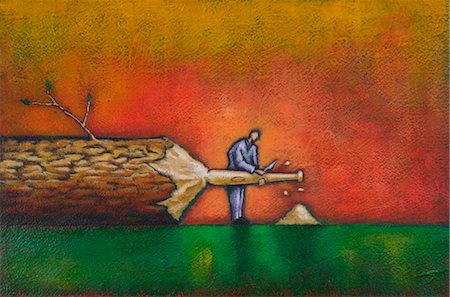
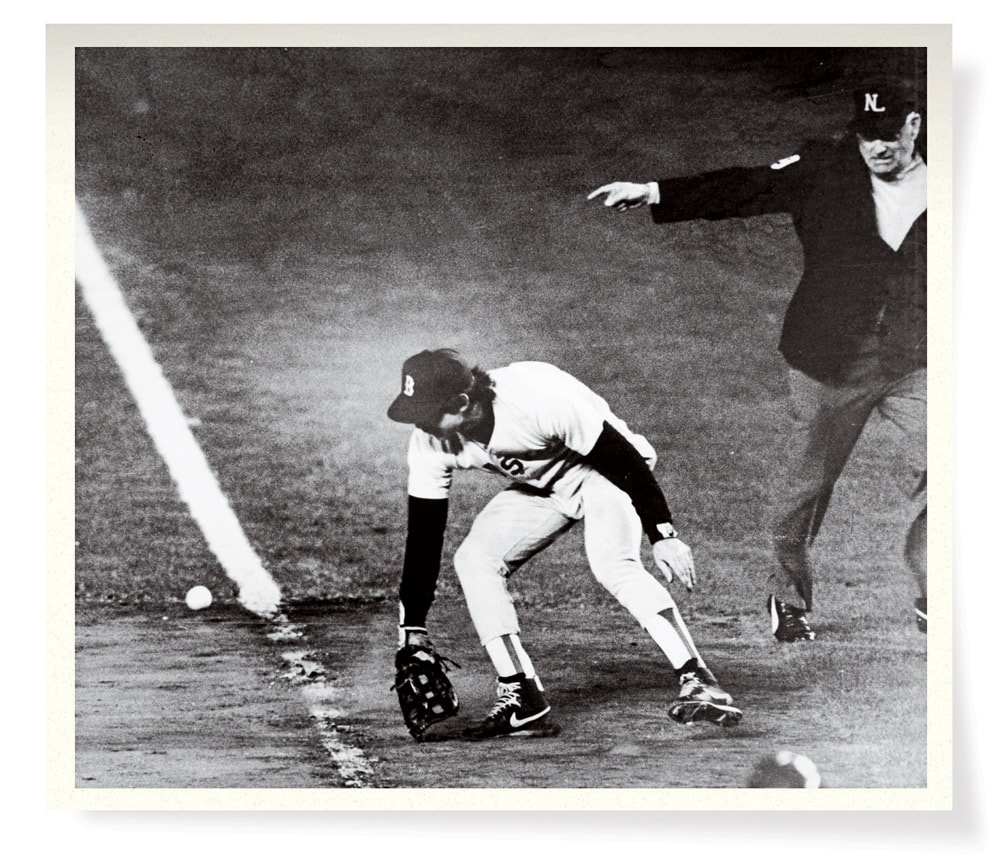
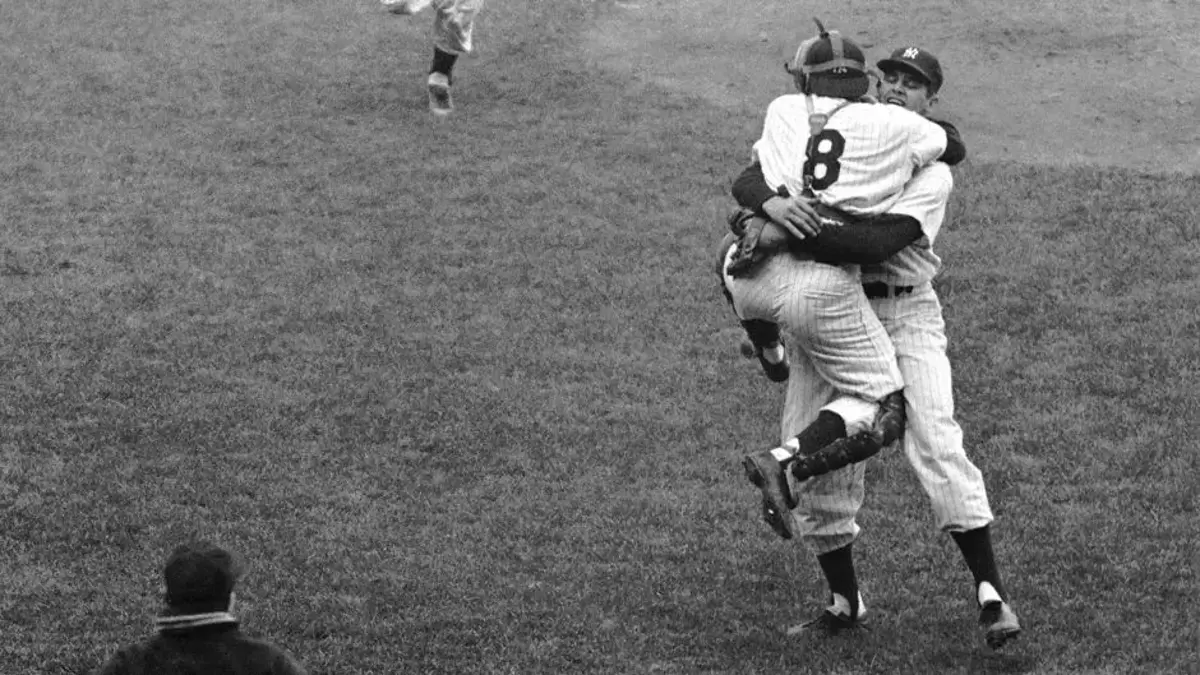
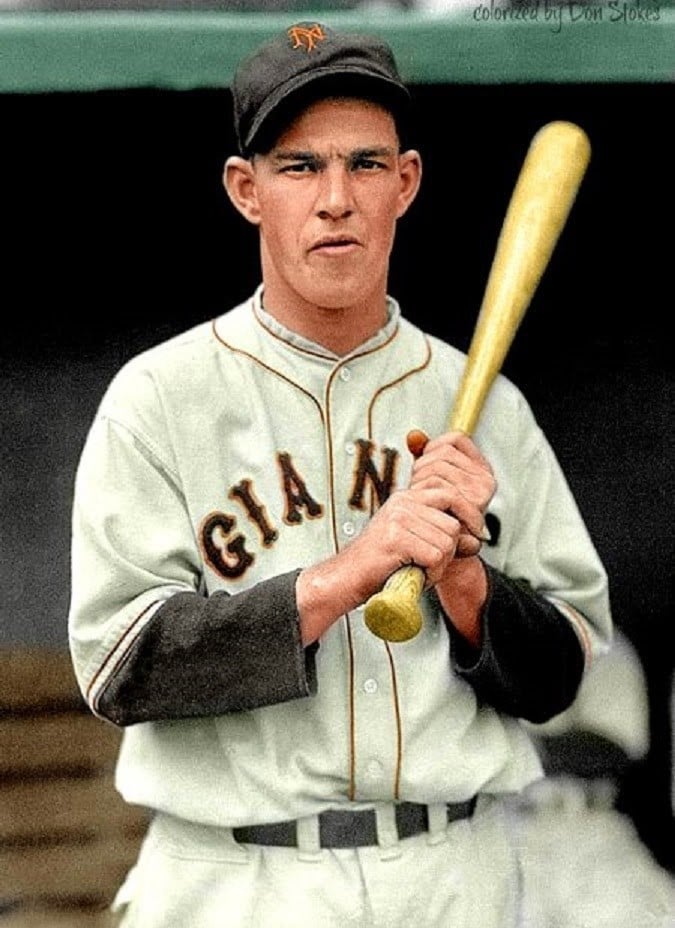
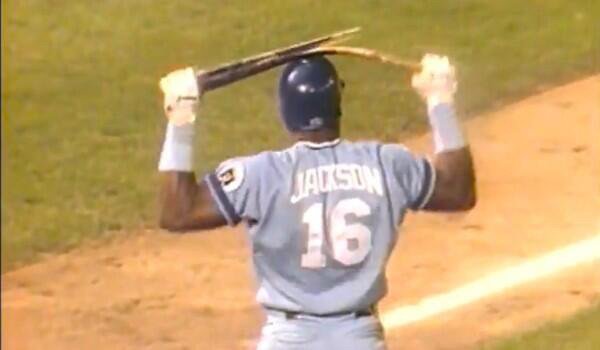
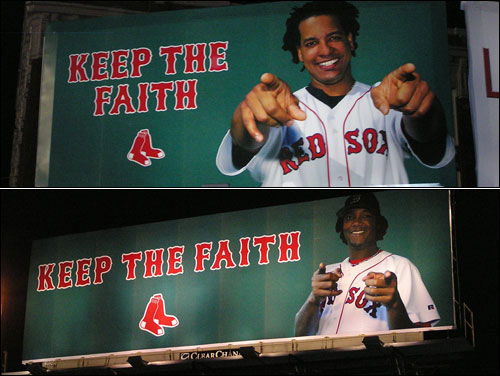
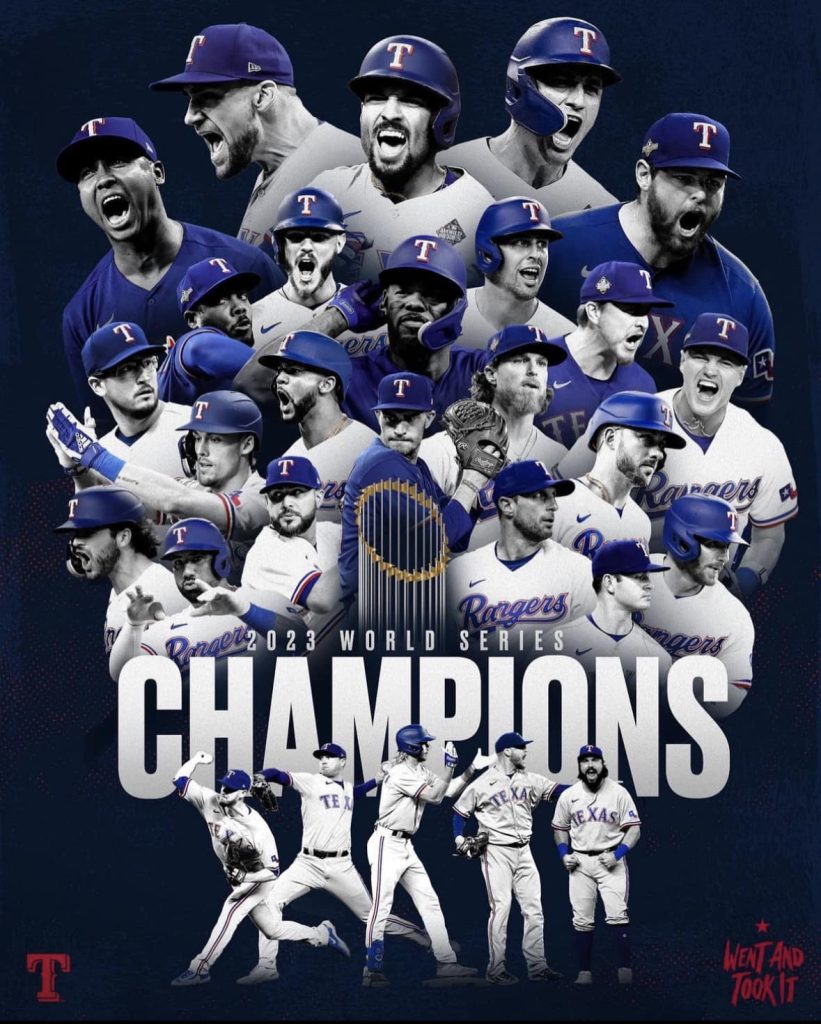
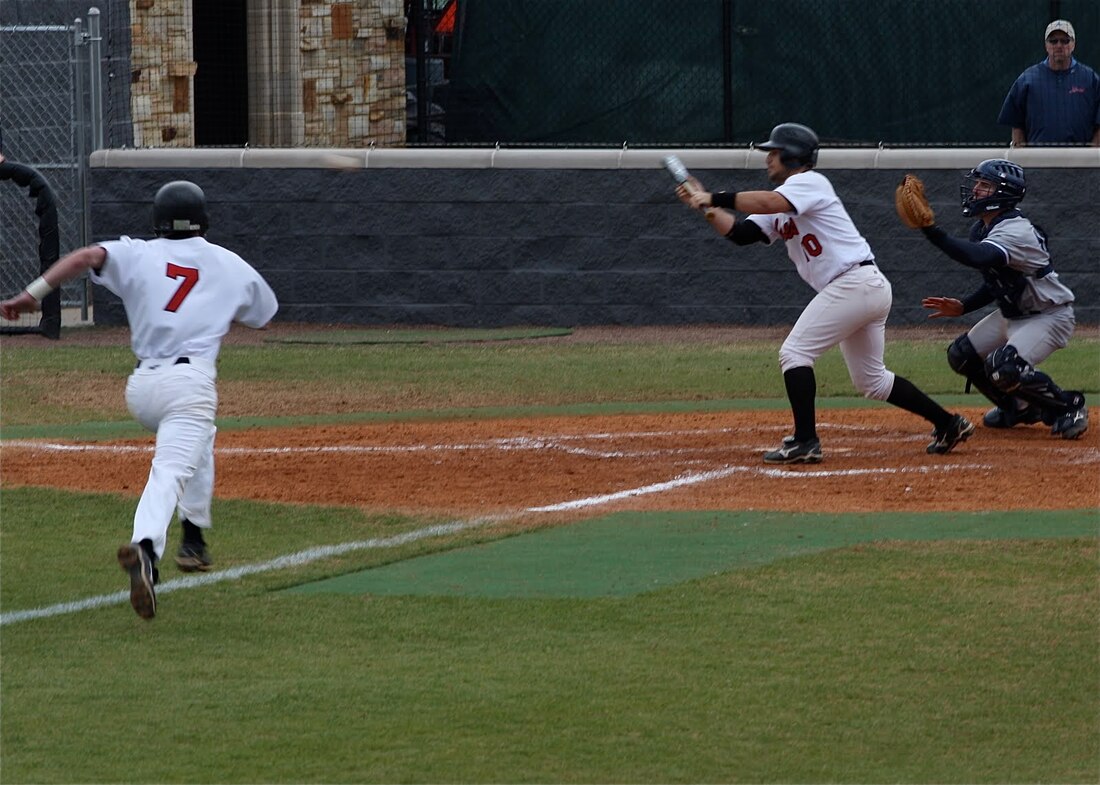
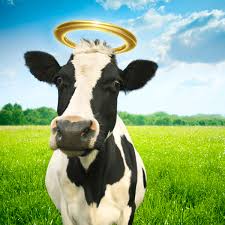
 RSS Feed
RSS Feed
